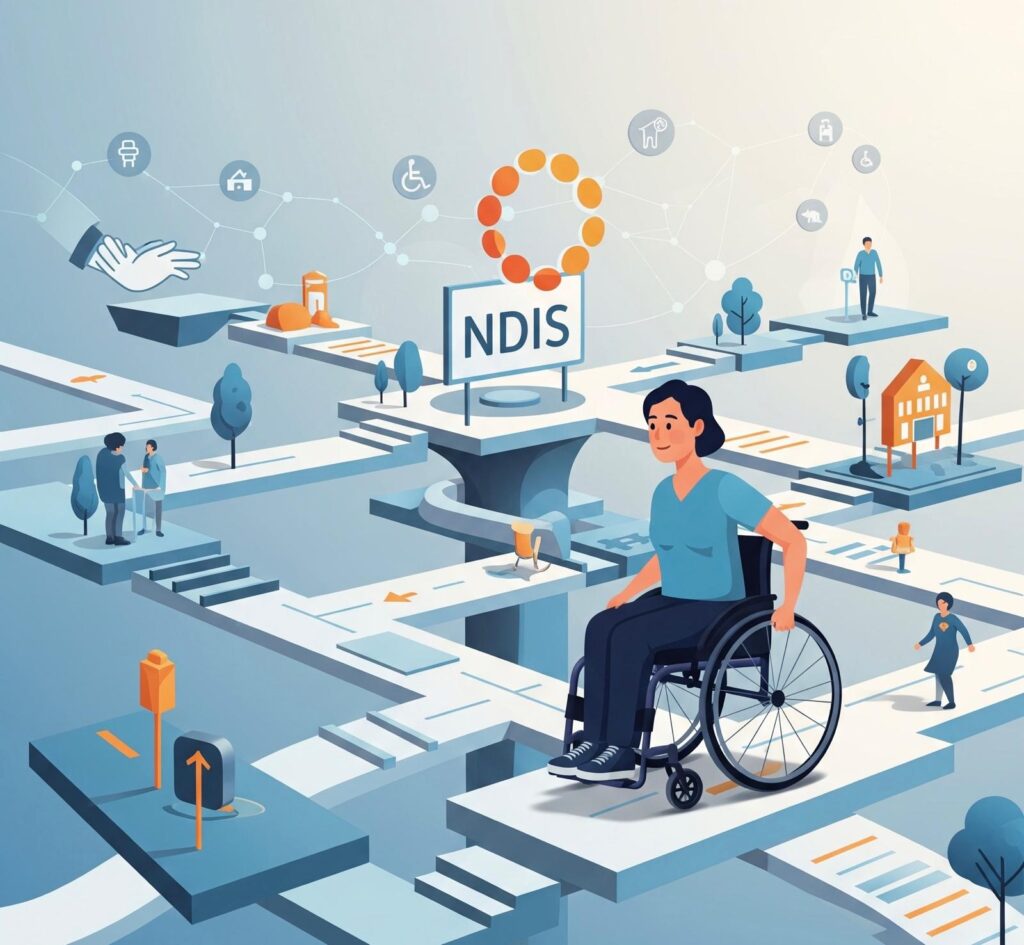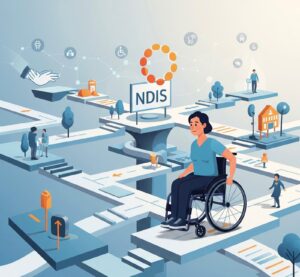Prenatal depression, also known as antenatal or perinatal depression, refers to the occurrence of depressive symptoms during pregnancy. This condition can significantly affect both the mother and the developing baby, making it crucial to understand its causes, effects, and management strategies. This article explores the various aspects of prenatal depression, supported by scientific research, to provide a comprehensive understanding of this mental health issue.
Keywords: prenatal depression, antenatal depression, perinatal mental health, maternal health, pregnancy depression, Australian healthcare
Causes of Prenatal Depression
The causes of prenatal depression are multifaceted, involving a combination of hormonal, psychological, and social factors.
1. Hormonal Changes
Pregnancy induces significant hormonal fluctuations, which can affect neurotransmitter systems in the brain, potentially leading to depression (Bloch et al., 2003).
- Hormonal Influence: Hormonal changes, particularly increases in estrogen and progesterone, can impact mood regulation and contribute to depressive symptoms (Bloch et al., 2003).
2. Psychological Factors
Psychological stressors such as anxiety about childbirth, fear of parenting, and concerns about the baby’s health can contribute to prenatal depression (Lancaster et al., 2010).
- Mental Health History: Women with a history of depression or anxiety are at higher risk of developing prenatal depression (Lancaster et al., 2010).
3. Social and Environmental Factors
Social and environmental stressors, including lack of social support, financial difficulties, and relationship problems, can exacerbate the risk of prenatal depression (Grote et al., 2010).
- Social Support: Limited social support from family and friends can increase the likelihood of depressive symptoms during pregnancy (Grote et al., 2010).
Effects of Prenatal Depression
Prenatal depression can have far-reaching effects on both the mother and the developing baby, impacting physical, emotional, and developmental outcomes.
1. Impact on the Mother
For the mother, prenatal depression can lead to significant emotional distress, affecting her ability to care for herself and her baby.
- Emotional Distress: Symptoms of depression such as persistent sadness, fatigue, and loss of interest in activities can severely affect a mother’s quality of life (Marcus et al., 2003).
- Health Risks: Depressed pregnant women are more likely to engage in unhealthy behaviours such as poor nutrition, substance use, and inadequate prenatal care (Marcus et al., 2003).
2. Impact on the Baby
Prenatal depression can also affect the developing baby, leading to potential complications during pregnancy and after birth.
- Preterm Birth and Low Birth Weight: Research indicates that prenatal depression is associated with an increased risk of preterm birth and low birth weight (Field et al., 2010).
- Developmental Issues: Babies born to mothers with prenatal depression may be at higher risk for developmental and behavioural issues, including increased irritability and sleep disturbances (Field et al., 2010).
Management of Prenatal Depression
Effective management of prenatal depression involves a combination of therapeutic interventions, lifestyle changes, and social support.
1. Therapeutic Interventions
Several therapeutic approaches have been shown to be effective in managing prenatal depression.
- Cognitive Behavioural Therapy (CBT): CBT is a widely used therapy that helps individuals identify and change negative thought patterns and behaviours (Pearson et al., 2013).
- Interpersonal Therapy (IPT): IPT focuses on improving interpersonal relationships and social functioning to alleviate depressive symptoms (Grote et al., 2010).
2. Medication
In some cases, medication may be necessary to manage severe prenatal depression. However, the use of antidepressants during pregnancy requires careful consideration and consultation with a healthcare provider (Wisner et al., 2009).
- Antidepressants: Selective serotonin reuptake inhibitors (SSRIs) are commonly prescribed but must be carefully monitored due to potential risks to the developing baby (Wisner et al., 2009).
3. Lifestyle Changes
Adopting healthy lifestyle habits can also play a significant role in managing prenatal depression.
- Exercise: Regular physical activity has been shown to improve mood and reduce depressive symptoms (Daley et al., 2015).
- Nutrition: Maintaining a balanced diet rich in essential nutrients supports overall health and wellbeing (Bodnar & Wisner, 2005).
4. Social Support
Building a strong support network is crucial for managing prenatal depression. Emotional and practical support from family, friends, and support groups can significantly alleviate stress and improve mental health (Lancaster et al., 2010).
- Support Groups: Joining prenatal support groups can provide a sense of community and shared understanding among pregnant women experiencing similar challenges (Dennis, 2005).
Conclusion
Prenatal depression is a serious condition that requires attention and care. Understanding its causes, effects, and management strategies is essential for promoting the health and wellbeing of both the mother and the baby. Through a combination of therapeutic interventions, lifestyle changes, and robust social support, women can effectively manage prenatal depression and ensure a healthier pregnancy.
References
- Bloch, M., Daly, R. C., & Rubinow, D. R. (2003). Endocrine factors in the etiology of postpartum depression. Comprehensive Psychiatry, 44(3), 234-246.
- Bodnar, L. M., & Wisner, K. L. (2005). Nutrition and depression: Implications for improving mental health among childbearing-aged women. Biological Psychiatry, 58(9), 679-685.
- Daley, A. J., Jolly, K., & MacArthur, C. (2015). The effectiveness of exercise in the management of post-natal depression: systematic review and meta-analysis. Family Practice, 22(2), 177-182.
- Dennis, C. L. (2005). Psychosocial and psychological interventions for prevention of postnatal depression: systematic review. BMJ, 331(7507), 15.
- Field, T., Diego, M., & Hernandez-Reif, M. (2010). Prenatal depression effects and interventions: a review. Infant Behavior and Development, 33(4), 409-418.
- Grote, N. K., Bridge, J. A., Gavin, A. R., Melville, J. L., Iyengar, S., & Katon, W. J. (2010). A meta-analysis of depression during pregnancy and the risk of preterm birth, low birth weight, and intrauterine growth restriction. Archives of General Psychiatry, 67(10), 1012-1024.
- Lancaster, C. A., Gold, K. J., Flynn, H. A., Yoo, H., Marcus, S. M., & Davis, M. M. (2010). Risk factors for depressive symptoms during pregnancy: a systematic review. American Journal of Obstetrics and Gynecology, 202(1), 5-14.
- Marcus, S. M., Flynn, H. A., Blow, F. C., & Barry, K. L. (2003). Depressive symptoms among pregnant women screened in obstetrics settings. Journal of Women’s Health, 12(4), 373-380.
- Pearson, R. M., Evans, J., Kounali, D., Lewis, G., Heron, J., Ramchandani, P. G., … & Stein, A. (2013). Maternal depression during pregnancy and the postnatal period: risks and possible mechanisms for offspring depression at age 18 years. JAMA Psychiatry, 70(12), 1312-1319.
- Wisner, K. L., Sit, D. K., Hanusa, B. H., Moses-Kolko, E. L., Bogen, D. L., Hunker, D. F., … & Singer, L. (2009). Major depression and antidepressant treatment: impact on pregnancy and neonatal outcomes. American Journal of Psychiatry, 166(5), 557-566.
How to get in touch
If you or your NDIS participant need immediate mental healthcare assistance, feel free to get in contact with us on 1800 NEAR ME – admin@therapynearme.com.au.







